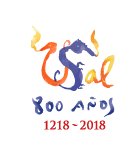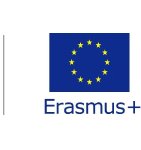ASSESSING WRITTEN PRODUCTION: A TEACHERS’ GUIDE TO USING THE ‘POPPLET’ MOBILE APPLICATION IN THE UNIVERSITY LANGUAGE CLASSROOM
This best practice is part of a
suite of language assessment activities designed within the context of the
E-Lengua project and implemented at Trinity College Dublin’s undergraduate
institution-wide language programme Designed to assess speaking and writing
skills within the Blackboard Learn virtual learning environment, three new
teaching and assessment activities were developed in order to promote engaged and
interactive language learning and assessment supported by the use of innovative
ICT activities within a higher education context. The Blackboard Blog project
assesses written interaction. The Pecha Kucha project assesses spoken
production. The Popplet project assesses written production. Together, these
three collaborative tasks were designed to form part of a cycle of group
projects completed over two terms of class.
This teachers’ guide provides support for the use of the Popplet application format in the language classroom as a means of teaching and assessing written production skills at B1 and B2 common European proficiency levels. Like mindmaps and other styles of visual representation, Popplet is a flexible visual presentation format for both individual learners and groups of learners. The features of Popplet which allow visualisation, mind mapping and also collaborative project work to present a flowing and attractive narrative for readers, supported by images and drawings as well as text in a variety of colours, sizes and forms (Popples).
Popplet presentations can be submitted online, or delivered synchronously with an accompanying oral presentation, live or via video calling applications, or asynchronously as a pre-recorded presentation which is then uploaded to the university’s virtual learning environment (typically, Moodle or Blackboard) for assessment. In the preparation of a Popplet presentation, learners must select images and address issues of copyright, quality etc., craft a structure to their story that is coherent, and manage the technical details of a using the features of the mobile application. These are valuable transferable skills which are gained during the assessment preparation.
Popplet has been the subject of academic discussion and investigation as a presentation format conducive to fostering student learning and engagement. This guide contains some of the most useful online links regarding use of Popplet, as well as a research bibliography of more than a dozen recent academic articles reporting on the use of Popplet in the university language classroom.
1. Popplet.com
http://popplet.com
2. Using Popplet in the Classroom: Integrating Technology for Teachers
http://blogs.sd38.bc.ca/tech38/2013/10/13/using-popplet-in-the-classroom/
3. Some creative ideas for using Popplet in the classroom
http://missnoor28.blogspot.com/2011/12/some-creative-ideas-for-usingpopplet.
html
4. Popplet mind mapping made simple
https://learnenglish2gether.wordpress.com/2015/03/06/popplet-mind-mappingmade-
simple/
5. Teacher Tech: Popplet
http://asilataner.weebly.com/blog/popplet
6. Web 2.0 Applied to English Teaching: How to use Popplet
http://ictsofidrazer.blogspot.com/2018/02/how-to-use-4-tutorial.html
7. Brainstorming in the iPad classroom
http://learningwithipads.blogspot.com/2013/02/brainstorming-in-ipadclassroom.
html
8. Digital Presentations in Education
https://www.scoop.it/t/digital-presentations-in-education/?&tag=Popplet
9. Popplet: Mind mapping tech tool
https://www.weareteachers.com/popplet-mind-mapping-tech-tool/
10. Using Popplet as a Writing Support to Alleviate Foreign Language Anxiety for English
Language Learners
https://bluebird5225.wordpress.com/2016/01/19/using-popplet-as-a-writingsupport-
to-alleviate-foreign-language-anxiety-for-english-language-learners/




